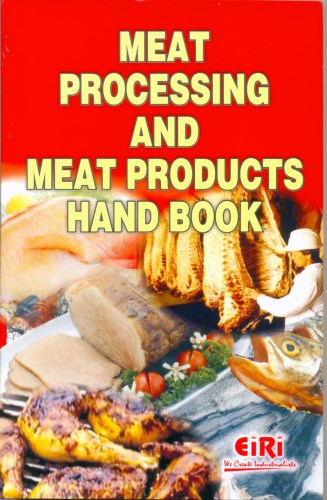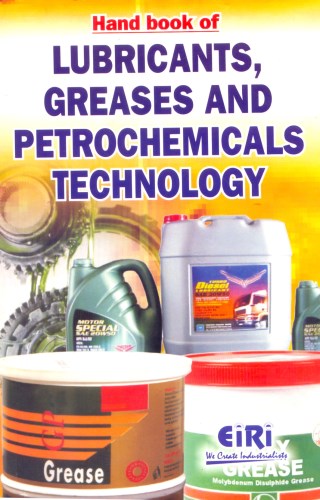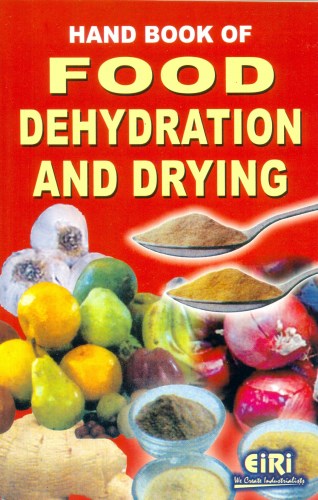Description
MEAT PROCESSING AND MEAT PRODUCTS HAND BOOK
PRESERVATION OF MEAT, FISH AND EGGS
Asepsis
Application of heat
Use of low temperatures
Preservation by Drying
Use of Preservatives
Spices
Antibiotics
Preservation of fish
Preservation of eggs
Contents of egg:
Spray died whole egg.
MEAT AND MEAT PRODUCTS
Composition of Meat
Classification of Meat
Mutton
Pork
Organs Meats
Sausages
Cooking of Meats
Dry Heat Methods
Moist Heat Methods
Cooking Frozen Meat
Curing of Meat
Smoking
RAW MATERIALS
Composition and Nutritive Value of Meat
Copsition of Meat
Carbohydrates
Vitamins
NATRITIONAL VALUE OF SOME PROCESSED MEATS
Toxic Compounds in Meat Products
CURING
Ingredients Utilized in Meat Curing
Salt
Sugar, Corn Syrup Solids, and Honey
Nitrite and/or Nitrate
Nitrosamines
Levels of Nitrite and/or Nitrate
Phosphates
Sodium Ascorbate and Erythorbate
Potassium Sorbate
Monosodium Glutamate
Hydrolyzed Vegetable Proteins
Sodium and Potassium Lactate
Cured Meat Color
Muscle Pigments
Myoglobin
Role of Nitrite and/or Nitrate in Meat Color
Curing Methods
Dry Salt Cure
Conventional Dry Curing
Pickle Cure
Thermal of Hot Cures
SMOKING
Purposes of Smoking
Composition of Smoke
Phenols
Alcohols
Organic Acids
Carbonyls
Hydrocarbons
Gases
Action of Smoke on Nutritive Value
Production of Smoke
The Nature of Smoke
Deposition of Smoke on Meats
Methods of Smoking
Types of Fuel
Cooking During Smoking
Temperature Conversion Tables
Liquid Smoke Preparations
Application of Liquid Smoke
MEAT COOKERY AND COOKED MEAT PRODUCTS
Action of Cooking
Denaturation and Changes in Solubility
Improvement in Palatability
Destruction of Bacteria and Improving Stability
Inactivation of Indigenous Enzymes
Surface Drying
Color Development
Methods of Cooking
Dry Heat Cookery
Moist Heat Cookery
Combination Methods of Cookery
Continuous Cooking Ovens
Microwave Cookery
Considerations in Selecting Cooking Methods
Types of Meats
Tender Cuts
Tough Cuts
Processed
Specific Cooking Methods
Broiling
Roasting
Frying
Braising
Pot Roasting
Stewing
Pressure Cooking
Simmering
COOKED MEAT PRODUCT RECIPES
Roast Beef
Raw Materials
Seasoning
Stuffing
Cooking
Chilling
Yield
Frozen Boneless Pork Loin Roasts and Chops
Raw Materials
Preparation and Stuffing
Cutting Loin into Chops
Government Specifications
Storage
Cooking
Frozen Boneless Pork Shoulder and Ham Rolls for Roast or Chops
Raw Materials
Preparation and Stuffing
Cutting Loin into Chops
Government Specifications
Storage
Cooking
Frozen Boneless Port Shoulder and Ham Rolls for Roast or Chops
Raw Materials
Preparation
Mixing
Stuffing
Freezing and Storage
Cooking
Frozen Boneless Beef Rolls for Grilling or Broiling
Raw Materials
Preparation
Stuffing and Pressure Packing
Freezing
Slicing Instructions
Cooking
Boneless Turkey Roasts
Raw Materials
Preparation of Meat
Typing the Roast
Processing
Cooking
RAW MATERILAS
Sausage and Canned Meals
Beef
Port
Veal and Mutton
Variety Meats
Mechanically Deboned Meat
Poultry Meat
Partially Defatted Tissue
Smoked Meats
Hams
Bellies
Pork Shoulders
Pork Loins
Processed Beef Cuts
Storage of Raw Materials
Certified Pork
SECTIONED AND FORMED MEAT FORMULATIONS
Sectioned and Formed Ham
Ingredients
Trimming and Cutting
Processing
Stuffing
Cooking and Smoking
Cooling
Beet Rolls
Ingredients
Preparation
Stuffing
Cooking and Cooling
Combination Ham-Soy Protein Isolate Product (66% Ham)
Ingredients
Processing
Stuffing
Cooking and Cooling
Combination Corned Beefsoy Protein Isolate Product (70% Corned Beef)
Ingredients
Processing
Cooking and Cooling
Combination Roast Beef-Soy Protein Isolate Product (70% Roast Beef)
Ingredients
Processing
Stuffing
Cooking and Cooling
Alternate Method for Beef-Soy Protein Isolate Product (70% Roast Beef)
Brine Preparation
Stuffing
Cooking and Cooling
Combination Roast Turkey Breast -Soy Protein Isolate Product (66% Turkey Breast)
Ingredients
Processing
Stuffing
Cooking and Cooling
Cooked Veal Rolls
Ingredients
Trimming and Cutting
Preparation
Stuffing
Cooking
Cooked Beef Rolls
Ingredients
Trimming and Cutting
Preparation
Stuffing and Pressure Packing
Cooking
Smoked, Chopped Turkey Loaf
Ingredients
Preparation
Stuffing
Smoking
Turkey Roll
Emulsion Preparation
Meat Preparation
Stuffing
Cooking
Turkey Ham
Ingredients
Trimming
Processing
Stuffing
Smoking
Turkey White Meat Turkey Ham Combination Roll
Ingredients
Emulsion Preparation
Meat Preparation
Stuffing
Smoking
Turkey Rolls
Types of Turkey Rolls
Improved 9-lb Turkey Roll
Ingredients
Preparation
Cooking
Oven Roasted Boneless Turkey Breasts
Raw Materials and Preparation
Trimming and Cutting
Processing
Stuffing
Cooking
SAUSAGES
Consumer Acceptance
Classification
Classification Using USDA Meat Inspection System
Steps in Processing
Grinding
Mixing
Chopping
Emulsifying
Stuffing
Linking and Typing
Smoking and Cooking
Chilling
Peeling and Packaging
Some Sausage Products
Coarse Ground Sausages
Fresh Pork Sausage
Whole Hog Sausage
FERMENTED MEAT PRODUCTS
Low Acid Products
High Acid Sausages
Semidry Sausage
Dry Sausage
Emulsion Type Products
Emulsification
Gelation
Emulsion Formation
Overchopping
Short Meat
Heat Breakdown
SAUSAGE FORMULATIONS
Ground Sausages
Instructions
Semidry or Summer Sausages
Instructions
Dry Sausages
Instructions
Emulsion-Type Sausages
Instructions
Liver Sausage and Braunschweiger
Instructions
Speciality Items
Instructions
Miscellaneous Sausages
Instructions
Mortadella
Instructions
Linguica (Portuguese Sausage)
Instructions
CASINGS, EXTENDERS AND ADDITIVES
Casings
Animal Casings
Regenerated Collagen Casings
Cellulosic Casings
Small Cellulose
Large Cellulose
Fibrous
Dry Sausage Fibrous
Clips and Thread Closures
Spices and Condiments
Additives
Ice or Water
Salt
Curing Salts
Ascorbates Erythorbates
Sugars
Phosphates
Glucono-d-lactone (GDL)
Acids and Liquid Smoke
Binders and Extenders
Soy Protein Extenders
Milk Protein Derived Extenders
Yeast Protein Derived Extenders
Sausage Flours and Starch
Colloids and Gums
Other Additives
Antioxidants
Bacterial Cultures
Flavor Enhancers
USE OF SPICES IN PROCESSED MEATS
Mustard
Black Pepper
White Pepper
Red Pepper
Paprika
Chili Pepper
Nutmeg
Mace
Coriander
Garlic
Sage
Cumin
Fennel
What and How you Taste
Flavors in Meat Products
Barbecue Sauce
Beef Stew
Beerwurst
Bologna
Cervelat
Chicken a la King
Chicken Loaf
Chill con Carne
Chorizo
Corned Beef
Cured Products (Ham, Bacon, Canadian Bacon)
Deviled Ham
Dry Sausage
Frankfurters (Hot Dogs)
Fresh Pork Sausage
Fried Chicken
Hamburger
Head Cheese
Italian Sausage
Knackwurst
Liver Spread
Liverwurst (Braunschweiger)
Luncheon Meat
Pastrami
Pepperoni
Pickled Fish
Polish Sausage (Kielbasa)
Pork and Beans
Salami (Cotto)
Salami
Scrapple
Sloppy Joe Sauce
Smoked Sausage
Smoked Pork Sausage
Summer Sausage (Beef Stick)
Swiss Steak
Vienna Sausage
CURED AND/OR SMOKED MEATS
Hams
Classification of Ham
Internal Temperature
Added Substance
Presence of Bone
Commercial Ham Manufacture
Curing
Smoking/Cooking
Cooked Ham
Baked Ham
Preparation
Country Ham
Preparation
Westphalian Ham
Preparation
Scotch Ham
Prosciutti Ham
Preparation
Honey Cured Hams
Preparation
Bacon
Canadian Bacon
Wiltshire Bacon
Beef Bacon
Jowl Bacon
Fat Backs and Heavy Bellies
Smoked Pork Loin
Picnic
Shoulder Butt
Corned Beef
Smoked Fresh Meat
Dried Beef
Procedure
Smoked and Cured Lamb
Smoked Tongue
Pickled Pigs Feet
REDUCED AND LOW FAT MEAT PRODUCTS
Effects of Reducing Fat
Effects of Fat on Flavor
Effect of Fat on Texture
Synthetic Fat Replacers
Fat Mimics
Hydrocolioids
Alginates
Carrageenan
Starches
Maltodextrins
Locust Bean Gum
Guar Gum
Gellan Gum
Xanthan Gum
Konjac Flour
Cellulose and Cellulose Derivatives
Oat Bran and Oat Fiber
Animal Proteins
Gelatin
Milk Proteins
Serum Proteins
Plant Proteins
Soy Proteins
Yeast Hydrolysates
Hydrolyzed Vegetable Proteins
Frankfurters in the U.S. Market
Instructions
THE CANNING PROCESS
Cans
Types of Cans
Square and Puliman Base
Pear Shaped
Round Sanitary
Drawn Aluminium
Oblong
Can Materials
Retorts
Nonagitating Retorts
Continuous Agitating Retorts
Hydrostatic Retorts
Establishment of Retort Schedule
Pasteurized Canned Products
Closing
Pasteurizing Cook
Cooling
Storage and Shelf Life
Aseptic Canning
CANNED MEAT FORMULATIONS
Corned Beef Hash
Federal Meat Inspection Regulations
Preparation
Meat
Potatoes
Onions
Canning
Beef Stew
Federal Meat Inspection Regulations
Preparation
Meat
Potatoes
Carrots
Onions
Preparation
Canning
Chili Con Carne
Federal Meat Inspection Regulations
Preparation
Canning
Vienna Sausages
Federal Meat Inspection Regulations
Preparation
Canning
Meat Balls With Gravy
Federal Meat Inspection Regulations
Preparation
Canning
Sliced Dried Beef
Federal Meat Inspection Regulations
Preparation
Processing
Drying and Smoking
Canning
Luncheon Meat
Federal Meat Inspection Regulations
Preparations
Canning
Processing
Pasteurized
Potted Meat
Federal Mea Inspection Regulations
Preparation
Canning
Canned Hams-Pasteurized and Sterile
Federal Meat Inspection Regulations
Preparation
Smoking
Canning
Filling and Pressing
Closing
Processing
Pasteurized
Sterile
Plastic Packaged Hams
Preparation
Packaging
Processing
RESTRUCTURED MEAT PRODUCTS
Procedures
Chunking and Forming
Flaking and Forming
Tearing and Forming
Raw Materials
Tenderization
Size Reduction
Mixing
Stuffing and Reforming
Influence of Raw Materials on Selection of Processing Procedures
Desinewing
Mechanically Deboned Meat
Freezing and Storage
Restructured Meat Formulations
Flaked and Formed Beef Steaks
Raw Materials
Processing
Flaked, Formed, and Diced Beef Steak
Raw Materials
Processing
Precautions
Flaked and Formed Breaded Veal Steaks
Raw Materials
Processing
Coating
Precautions
Flaked and Formed Breaded Pork Steaks
Materials
Processing
Coating
Precautions
Flaked and Formed Diced Pork
Materials
Processing
Precautions
Flaked and Formed Lamb Steaks
Materials
Processing
Precautions
Restructured Pork Roasts
Raw Materials
Processing
Precautions
Restructured Beef Roasts
Materials
Processing
Precautions
METHODS FOR TENDERIZATION OF MEATS
Rigor Mortis- Ageing and Conditioning
Electrical Stimulations (Es)
Tender Stretch Method
Tenderization with Salts and Acids
Providing Balanced Electrolytes
Proteolytic Enzymes-Ginger, Cucumis and Papain
Mechanical Methods
Tumbling, Massaging and Blade Tenderization
Pressure Treatment
Addition of Phosphates
QUALITY ASPECTS OF POULTRY MEAT AND ITS PRODUCTS
Physico-Chemical and Functional Properties of Poultry Properties of Poultry Meat
Composition of meat
pH
Water holding capacity
Shear force value
Emulsifying capacity
Emulsion stability
Cooking yield of poultry products
Microbiological Quality of Poultry and Poultry Products
Organoleptic Characteristics of Poultry and Poultry Products
DEVELOPMENTS IN MODIFIED ATMOSPHERE PACKAGING OF MEAT POULTRY AND FISH
Introduction
Modified Atmosphere Technology
Equipments and Films for Map
Effect of Gases on Map Foods
Effect of Oxygen (O2)
Effect of Nitrogen (N2)
Effect of Carbon dioxide (CO2)
Effect of Map on the Quality of Fresh Meats
Beef and Buffalo Meat
Pork Meat
Poultry Meat
Fish Meat
Effect of Map on Processed Meats
Sous Vide Products
Package Integrity and Quality of Map Foods
Cost Benefit Relationship
Conclusion
BROILLER CHICKEN
BUFFALOW MEAT PROCESSING
CHICKEN MEAT PROCESSING
CHICKEN/MUTTON (SHEEP MEAT) PROCESSING
CHICKEN SAUSAGES & CHICKEN HAMBURGER
FROZEN MEAT
PIGGERY MEAT PROCESSING
SUPPLIERS OF PLANT AND MACHINERIES
SUPPLIERS OF RAW MATERIALS
Engineers India Research Institute (EIRI) is a renowned name in the industrial world for offering technical and financial consultancy services.
EIRI services are:
Detailed Feasibility Reports
New Project Identification
Project Feasibility and Market Study
Identification of Lucrative Industrial Project Opportunities
Preparation of Project Profiles / Pre-Investment and Detailed Feasibility Studies,
Market Surveys / Studies, Market Survey Cum Detailed Techno-Economic Feasibility Reports
Project Reports in CD Roms
Identification of Plant /Process/Machinery and Equipment, Industrial General Guidance for setting up new industrial projects.
Our most up-to-date and Technologically Advanced Industrial Project Reports, categorized with respect to Financial Outlays and Sector – wise Classification are immensely useful for :
Existing Small or Medium Scale Industrialists facing competition from large houses
Young Entrepreneurs dreaming to start their own industrial enterprise
Young Graduates and Professionals wishing to begin their career
Industrialists interested in Debottlenecking their capacities & New Product – Lines
Large Industrial Houses pursuing Expansion, Growth and Diversification Plans






